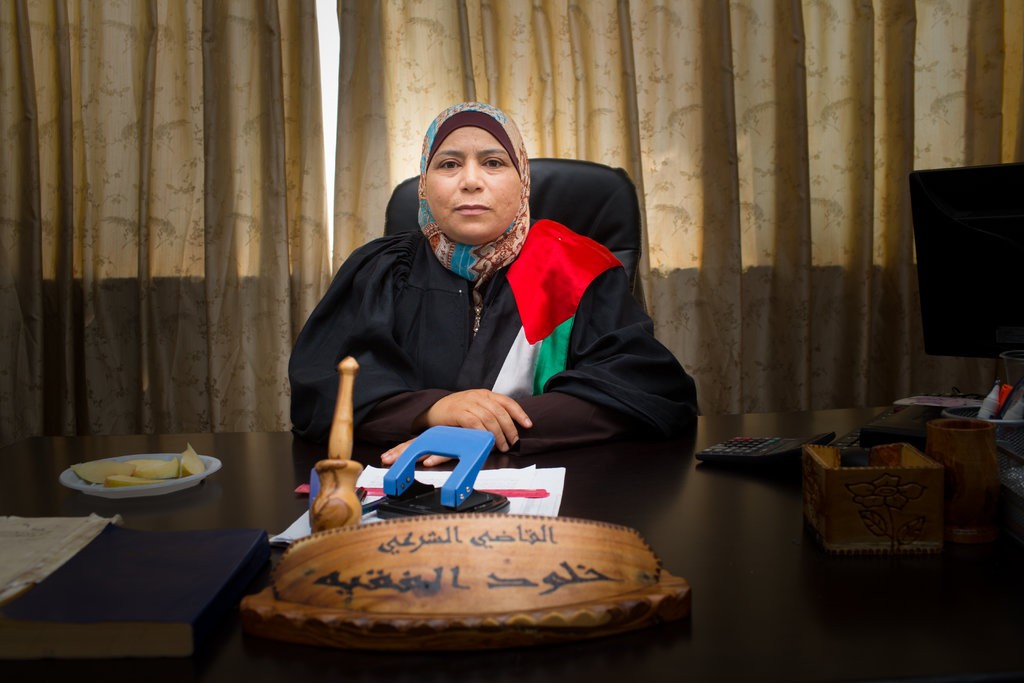By Jeannette Catsoulis
Kholoud Al-Faqih is the subject of “The Judge.”CreditCreditIdle Wild Films
- The Judge, Directed by Erika Cohn, Documentary 1h 16m
A conventional portrait of a highly unconventional woman, Erika Cohn’s documentary “The Judge” has a worthy subject in Kholoud al-Faqih, the first woman to be appointed, in 2009, to the Middle East’s religious courts.
Dealing mainly with family disputes like spousal abuse, divorce and alimony claims, these courts are governed by Islamic law that can vary in interpretation from region to region. Further complicating matters are chauvinistic cultural traditions that can overrule religious dictates, resulting in adjudications that are fraught and combative.
Undismayed, Ms. al-Faqih presides over a bustling courtroom in the West Bank (intimately filmed by the cinematographer Amber Fares, who directed the warmhearted documentary “Speed Sisters”). The proceedings are vexingly vague, serving mainly to highlight a personality at once firm and compassionate, sharp-witted and immune to male privilege. A visit with Ms. al-Faqih’s parents — who put almost all of their 12 of their children through college — is brief but revealing, as is footage of the judge educating a women’s group on their rights. In countries where domestic violence is viewed as a shameful private matter, and honor-killing excuses can be used to deflect a murder charge, women need all the help they can get.
Against this backdrop of domestic strife, “The Judge” is, like its namesake, defiantly upbeat. Though voices both welcoming and hostile to women judges are represented, Ms. al-Faqih’s likely Sisyphean battle to reach her position feels insufficiently underlined. Her mettle is on full view, though, when a new chief justice tries to sideline her; quietly and patiently fighting back, she emerges as someone who’s no threat to religious law, but who’s a real problem for patriarchy.


